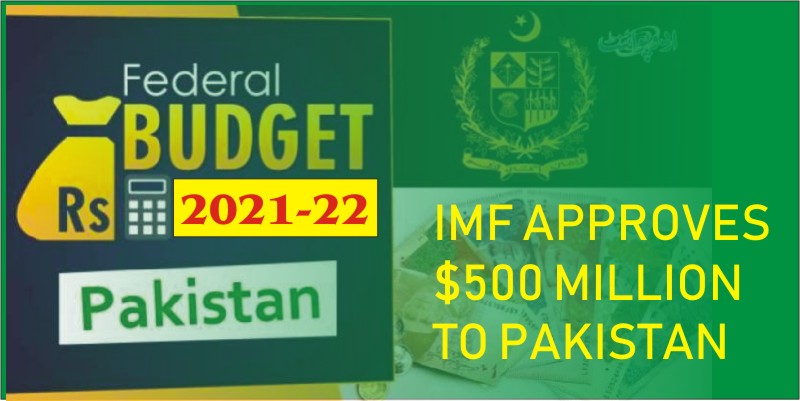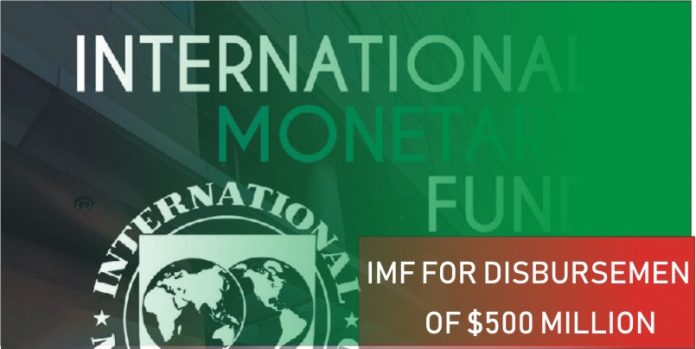The IMF Executive Board completed the combined second through fifth reviews of the Extended Arrangement under the Extended Fund Facility for Pakistan, permitting for an instant purchase equivalent to about US$500 million for budget support.
Program performance has stayed good enough despite the exceptional confrontation of the Covid-19 shock. The Pakistani competent authorities remain affirmed to aspiring policy actions and structural reforms to broaden economic toughness, advance maintainable growth, and accomplish the economic reform program medium-term objectives.

The Board’s decision permits for an instant disbursement of SDR 350 million of about US$500 million. This brings total purchases for budget support under the arrangement to about US$2 billion. The program aims to back Pakistan’s policies to help the economy and save lives and livelihoods among the still Covid-19 pandemic, assure macroeconomic and debt soundness and advance structural reforms to lay the foundations for strong, long-permanent growth that benefits all Pakistanis.
The Pakistani authorities have also continued to develop their reform agenda in main areas, including on integrating central bank autonomy, improving corporate taxation, support management of state-owned enterprises, and improving cost recovery and regulation in the power sector.
Efficient ownership and dedicated reform execution remain pivotal in context of high uncertainty and risks. Fiscal performance in the first half of financial year 2021 was judicious, providing targeted support and maintaining easiness. In the year 2022 fiscal targets rests on the reform of both general sales and personal income taxation. The preset monetary viewpoint is suitable and backs the incipient recovery. The market-determined exchange rate remains to suck up outside distress and re construct reserve strength.
In spite of recent improvements, increase efforts to rid of structural obstruction will bolster economic productivity, confidence, and private sector investment. These contain measures to boost the governance, transparency, and efficiency of the vast State Enterprise Sector; encourage the business environment and job creation; and enhance governance and built up the effectiveness of anti-corruption organization.
During the period between July 2019 when Pakistan signed the deal with the IMF and April 2020 when the programme was deferred owing to Covid-19, fiscal and monetary policy adjustments made under the programme witnessed the economy come to a final stop with thousands of people losing their jobs and several industrial and businesses closing down.
The IMF desires the government to continue its rational, decreasing fiscal policy, which requires it to significantly reduce its job-generating development spending, reduce its subsidy bill, raise sales tax and income tax from the next financial year for mustering revenues to achieve a permanent improvement in public finances and place debt on a downward way.
The burden would largely be tolerated by the low-middle-income section that have already been shaken by the heavy increase in electricity prices, food inflation, job losses and pay declines. Businesses will also feel the influence.
The withdrawal of certain corporate tax benefits has already caused uneasiness in the corporate sector as it will bite growth prospects and diversification plans of the companies. It is observed that the Fund is anticipated to tolerate the government’s not ability to correct its corrupt, ineffective tax machinery or widen the tax net and implement governance reforms. There are also fears that the central bank may restrict the government’s capacity to help people and businesses.
Read More: A Fast Increase in FTSE
Our tax structure is unjust and one-sided. The number of filers has risen tremendously yet collections from personal income tax have not risen correspondingly or significantly. State Enterprises has generated large worries amongst the staff of these entities. The power sector continues to be badly managed and the government’s dependence on raising tariffs to meet its worse performance is a policy similar of previous administrations with the pain braved by the consumers.
Restriction accepted by government for restoration of the IMF loan programme are sure going to hit the people like never before. IMF programme is all about bringing economic stability through structural reforms, the condition should not be hard enough to affect the execution capability. The IMF in its own interest should come up with a workable path of economic reforms in order to allow a country to increase its debt repayment capability.
In Pakistan’s case however, the reform measures proposed rather upon by the IMF are getting more and more difficult for the common man to go on with. The government has also allowed greater autonomy to the State Bank of Pakistan over price control by adopting exchange rate and monetary policy without the government’s interventions. This is something exceptional in the State Bank history. Since the governments over the years have enjoyed control over SBP operations, freeing it from political impact must be welcomed. However, the extent of the autonomy granted to the central bank is like making it dominant to the IMF.

